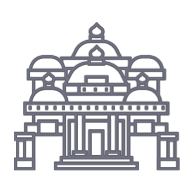We realize that a variety of health institutions offers a wide market of medical services which also need software solutions. A question may arise: Why? Well, paper-based solutions for health records management and communicating data to health insurance companies cannot meet the demands of a modern healthcare facility. There is a strong possibility to acquire electronic health information systems. The transformations in healthcare and medicine business with the help of software development are imminent and are being adopted by some of the biggest names in the industry.
Most of the times, these software solutions used in the healthcare industry are pre-made, mass-market software. Such solutions are created for commercial purposes which results in risking your resources and may not meet your business requirements. Here, we’d like to point that custom software solutions are always thumbs up instead of bespoke (off-the-shelf) solutions. Packaged software may cost a bit less but are half capable and efficient. As the business grows, there develops a need to change the software that off-the-shelf solutions will never provide, unless you purchase a new one.
How are modern technologies going to shape a direction for custom software development in healthcare? What prospects are drawn in the future? What benefits will the physicians receive? If you have the same queries, then we have answers to all such questions along with just the right software solutions you may need to know about.
Below are the technologies which will justify the issues mentioned earlier.
- Blockchain and Healthcare: Healthcare has always developed an interest in Blockchain due to its decentralized structure, transparency, and consistency of the stored data. There are some particular areas in healthcare where Blockchain fits the best.
- Drug supply maintenance: The Blockchain technology can track the supply chain of drugs including to whom the drugs are transferred, to what extent they are required, protecting the patients from fake drugs and so on. For example, drugs that contain narcotic substances are subject to special control.
- Patient data storage: Usually, electronic databases are used to keep all the medical data but patients do not have any access to know what is happening with their medical records. If we transfer the information to the Blockchain, the patient himself can provide access to his or her data to physicians or research organizations.
- Medical Insurance: Since no system can be hacked and no data can be deleted, medical insurance companies can trust medical records through Blockchain.
- AI in Healthcare: The medical data which is growing rapidly is impossible to absorb in a short term. Well, in that case, personalized AI provides a lot of opportunities by providing healthcare tools that can help physicians to process large data, monitor patient health, and make important clinical and prophylactic decisions.
- Diagnosis: Examination reports and medical history of a patient allows you to diagnose and prescribe medicine. But the experience of doctors is not enough to see the whole picture and correctly diagnose the disease. In that case, AI allows you to measure the physiological parameters of the patient with access to scientific literature which can make an accurate diagnosis for the further therapeutic processes.
- Surgery: Personal assistants are being used by many healthcare institutions and professionals from gastroenterology to cardiology. Even giants like Google and Ethicon are also investing their resources in the generation of customized robotic assistants equipped with personalized AI and capable of performing minimally invasive operations.
- Internet of Medical Things: The tremendous growth of IoT in healthcare has opened up a huge scope for Medical IoT Devices since the number has grown from 56.5 mn in 2017 to 125.4 mn in 2018. Continuous developments in the field of devices connected to the network help to improve certain medical processes, facilitate the work of medical professionals and, ultimately, improve the situation in overloaded hospitals.
Custom IoT development in healthcare also can make a significant contribution to creating more personalized and patient-centered medicine. Under this, remote health condition monitoring has a major potential including sensors in surgery and intensive care units. Wearable devices and Telemedicine are also a part of devices under the Internet of Medical Things.
- A connection between Big Data and Cloud Computing in Healthcare: Electronic medical records which include medical history and lab test results including medical research are some examples of custom big data in healthcare. Similarly, the application of cloud computing is one of the ways to reap the benefits of personalized big data in medicine. Issues like data theft, data loss, and account hacking are no longer an obstacle after the involvement of the cloud. Hybrid clouds unite public and private cloud infrastructures to balance the load on the server. Cloud analytics at the hospitals can help predict the number of patients daily, prevent opioid abuse, help in medical researches.
- ERP Software in Healthcare: Cloud technologies are expanding the opportunities of customized ERP systems as they help big companies to store and process data. Users of medical ERP software need a convenient personalized system that is accessible everywhere and on every device. Well, the increased functional capabilities of ERP systems demand developers to make more user-friendly interfaces. ERP systems have also been started to solve business tasks. Intelligent ERP medical software combines cloud computing, machine learning and intelligent analytics for providing unique data.
- “The Future”: Science and technological progress has been tremendously growing and has performed miracles in the healthcare industry. Real-life cyborgs with augmented human bodies by technologies, nanobots in human blood and eliminating the harmful bacteria, and even digital tattoos to measure heart and brain activity are some technological advancements made by no wizards, but humans! The future of healthcare with technological growth is going to be vast and with a huge scope.
 Blog
Blog

 Karthik Nath
Karthik Nath  6 December 2018
6 December 2018







